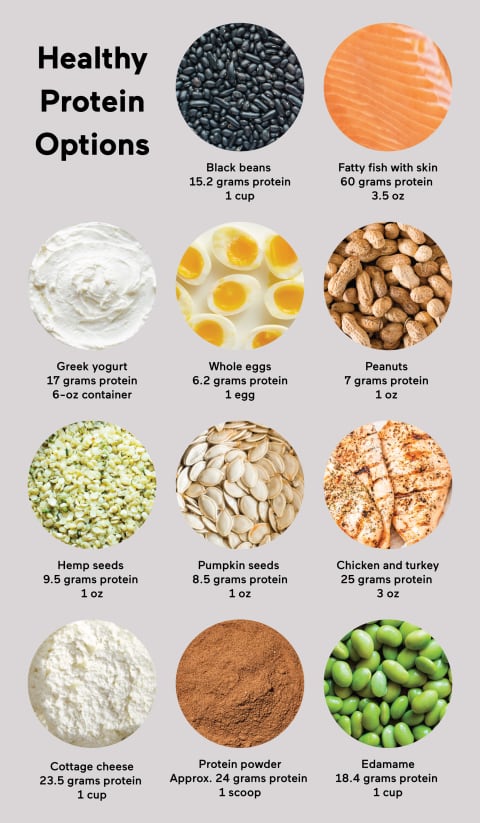Timeline Tales
Exploring the stories that shape our world, one timeline at a time.
Lean Protein, Lean Gains: Fueling Your Fitness Frenzy
Unlock your fitness potential with lean protein secrets for impressive gains. Fuel your frenzy and transform your workouts today!
Top 10 Lean Protein Sources for Your Fitness Journey
In any fitness journey, incorporating lean protein sources is essential to support muscle growth, repair, and overall health. Here are the top 10 lean protein sources you should consider adding to your diet:
- Chicken Breast
- Turkey
- Fish (Tuna, Salmon)
- Eggs
- Greek Yogurt
- Legumes (Lentils, Chickpeas)
- Cottage Cheese
- Tofu
- Quinoa
- Lean Cuts of Beef
Including these lean protein sources in your meals not only helps in building and maintaining muscle mass but also aids in weight management. Protein has a satiating effect, making you feel fuller for longer while providing essential amino acids that are vital for your fitness progress. Remember that balance is key, so pair these proteins with healthy fats and carbohydrates to fuel your workouts effectively.

How Much Protein Do You Really Need for Lean Gains?
When it comes to achieving lean gains, understanding your protein needs is crucial. The general recommendation for protein intake varies depending on factors such as age, sex, and level of physical activity. For those engaged in regular strength training, 1.6 to 2.2 grams of protein per kilogram of body weight is typically suggested. This amount not only aids in muscle repair and growth but also helps maintain a positive nitrogen balance, which is essential for building lean muscle mass.
To put this into perspective, consider the following guidelines for calculating your protein needs:
- Determine your body weight in kilograms by dividing your weight in pounds by 2.2.
- Multiply your weight in kilograms by the desired protein intake range (1.6 to 2.2 g/kg).
- This will give you the total grams of protein you should aim for daily.
By carefully managing your protein intake, you can optimize your training results and achieve those coveted lean gains more effectively.
The Role of Lean Protein in Muscle Recovery and Growth
Lean protein plays a crucial role in muscle recovery and growth by providing the necessary amino acids that the body requires after intense workouts. When you exercise, especially during strength training, muscle fibers experience microscopic tears. To repair these tears and promote muscle growth, your body needs an adequate supply of protein. Sources of lean protein, such as chicken, turkey, fish, tofu, and legumes, not only help in repairing muscles but also aid in the synthesis of new muscle tissue. A diet rich in lean protein can significantly enhance recovery times and overall performance.
Incorporating lean protein into your post-workout nutrition is essential for optimizing muscle recovery. Ideally, you should aim to consume a source of lean protein within 30 minutes to two hours after exercising. This timing helps to maximize muscle protein synthesis. A balanced meal or snack containing lean protein, along with carbohydrates, can replenish glycogen stores and promote faster recovery. For instance, a smoothie with Greek yogurt and fruits or a chicken salad with whole grains can be effective choices. By prioritizing lean protein in your diet, you're not just supporting muscle recovery; you're also setting the foundation for long-term muscle growth and improved physical performance.